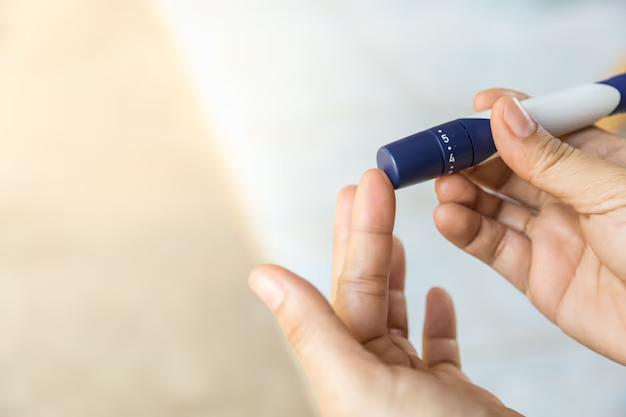Your Guide to How Can You Tell If You Have Diabetes
What You Get:
Free Guide
Free, helpful information about Diabetes FAQ and related How Can You Tell If You Have Diabetes topics.
Helpful Information
Get clear and easy-to-understand details about How Can You Tell If You Have Diabetes topics and resources.
Personalized Offers
Answer a few optional questions to receive offers or information related to Diabetes FAQ. The survey is optional and not required to access your free guide.
Discovering Diabetes: Signs and Solutions for a Healthier Future
Understanding whether you have diabetes can be both concerning and crucial for maintaining your health. This condition affects millions globally, yet many people remain undiagnosed. Catching the warning signs early is vital for effective management and prevention of complications.
Recognizing the Symptoms
Diabetes is a condition that impairs the body's ability to process blood glucose, or blood sugar. The most common types are Type 1, Type 2, and gestational diabetes. Here are some classic symptoms that might indicate you have diabetes:
- Frequent urination: An increased need to urinate, especially at night, is a red flag.
- Excessive thirst: As the body attempts to manage a higher blood sugar level, you might feel unusually thirsty.
- Unintentional weight loss: Despite eating normally, weight loss can occur as the body fails to utilize glucose effectively.
- Fatigue: Feeling unusually tired could suggest your body isn't efficiently converting sugar to energy.
- Blurred vision: High blood sugar levels pull fluid from tissues, affecting your eyes.
- Slow healing of cuts and bruises: Poor circulation can delay healing processes.
- Tingling or numbness: Particularly in your hands or feet, indicating nerve damage.
If you exhibit these symptoms, it’s essential to consult a healthcare professional for proper testing and diagnosis.
Testing for Diabetes
Identifying diabetes typically involves a few medical tests:
- A1C Test: Measures average blood glucose over the past 2-3 months.
- Fasting Blood Sugar Test: Checks your blood sugar level after an overnight fast.
- Oral Glucose Tolerance Test: Assesses blood sugar before and after drinking a sweetened drink.
Receiving a timely diagnosis allows for early intervention, which is key to managing diabetes effectively and avoiding serious health issues.
Managing Costs and Finding Financial Help
Diabetes management can be expensive, involving regular medication, monitoring equipment, and routine doctor visits. Fortunately, there are financial resources available to ease this burden.
Government Aid Programs: Programs like Medicaid and Medicare can help cover costs for eligible individuals. Also, the Supplemental Nutrition Assistance Program (SNAP) can assist with purchasing healthy foods essential for diabetes management.
Pharmaceutical Assistance Programs: Many pharmaceutical companies offer programs to help patients access diabetes medications at reduced costs.
Non-profit Organizations: Entities such as the American Diabetes Association provide resources and occasionally financial assistance for those in need.
Exploring Educational Opportunities
Learning more about diabetes can empower you to take control of your health. Free or low-cost resources such as community workshops and online courses can provide invaluable insight:
Community Health Workshops: Often held by local hospitals or health departments, these can offer nutrition and lifestyle modification education.
Online Educational Platforms: Websites offer courses on managing diabetes and understanding its implications.
Addressing diabetes symptoms promptly and effectively can drastically improve your quality of life. While dealing with a diabetes diagnosis can seem challenging, knowing your options for medical, educational, and financial support can alleviate much of the uncertainty. Take advantage of the resources available to you, ensuring you’re well-equipped to navigate life with diabetes confidently.
Financial and Educational Resources to Consider
- 🏥 Medicaid/Medicare: Government-provided health coverage.
- 💊 Patient Assistance Programs: Available from pharmaceutical companies for medication discounts.
- 🍎 SNAP (Supplemental Nutrition Assistance Program): For nutritional aid.
- 🏫 Community Workshops: Free or low-cost sessions by healthcare providers.
- 📚 Online Courses: Websites offering diabetes management education.
- 💼 Non-profit Support: American Diabetes Association for guidance and resources.
What You Get:
Free Diabetes FAQ Guide
Free, helpful information about How Can You Tell If You Have Diabetes and related resources.

Helpful Information
Get clear, easy-to-understand details about How Can You Tell If You Have Diabetes topics.

Optional Personalized Offers
Answer a few optional questions to see offers or information related to Diabetes FAQ. Participation is not required to get your free guide.


